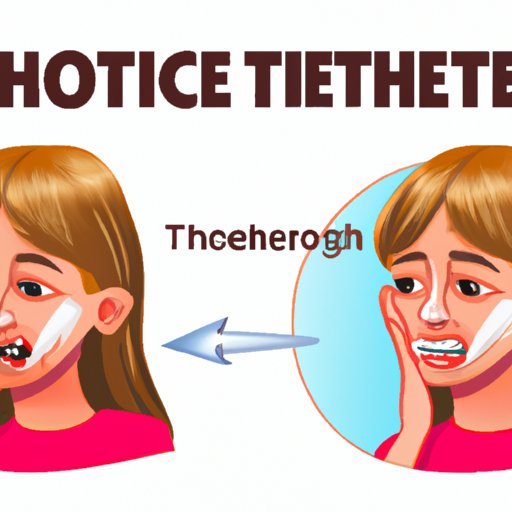
Introduction
Dealing with a toothache can be incredibly uncomfortable, making it difficult to focus on anything else. Toothaches can range from mild to severe, and the pain never seems to go away. Whether the toothache is caused by cavities, gum disease, an abscessed tooth, or a broken filling, it’s important to find relief as soon as possible. In this article, we’ll explore some of the best home remedies, prevention strategies, and seeking dental assistance to help you get rid of a toothache.
Homemade remedies
There are several readily available kitchen ingredients that can help alleviate the pain associated with a toothache. Garlic, clove oil, and salt water solutions are just a few remedies that can provide relief. Garlic has anti-inflammatory properties, and chewing on a fresh clove of garlic can reduce pain and swelling. Clove oil has a numbing effect, and applying it to the affected area can reduce toothache pain. Salt water is a natural disinfectant and can help draw out any pus buildup from an abscessed tooth.
It’s important to take precautions when using home remedies. Applying anything directly to the affected tooth can sometimes cause more pain or damage if used incorrectly. If you’re unsure about a home remedy, it’s always best to speak with your dentist or healthcare provider.
Seeking dental assistance
Knowing when to seek dental assistance is crucial when dealing with a toothache. If the pain is severe, lasts for more than a few days, or is accompanied by other symptoms such as fever, difficulty breathing, or swelling, you should see a dentist immediately. During your dental visit, your dentist will examine your teeth and take x-rays if necessary to determine the cause of the pain. The dentist may then recommend an appropriate treatment, such as a filling, extraction, or root canal.
Avoiding certain foods
Some foods can aggravate toothache pain, particularly hot and cold beverages and foods. Spicy or acidic foods should also be avoided when dealing with a toothache, as they can exacerbate the pain. Instead, try eating soft, nutritious foods such as soup, yogurt, and mashed potatoes. These foods are easier to digest and gentle on the teeth, allowing the body to focus on healing.
Over-the-counter pain relievers
Over-the-counter pain relievers such as ibuprofen and acetaminophen can be effective in reducing toothache pain. It’s important to remember to only take the recommended dosage and follow the usage instructions on the packaging. Taking too much medication can cause other health concerns.
Cold compress vs. Warm compress
When dealing with toothache pain, both cold and warm compresses can provide relief. A cold compress can help reduce swelling and numb the affected area, while a warm compress can improve blood flow to the area and relax sore muscles. To make a cold compress, wrap a pack of frozen vegetables or a cold pack in a towel and apply it to the affected area. To make a warm compress, soak a towel in warm water and apply it to the face near the affected tooth.
Practicing good oral hygiene
Preventing toothaches begins with practicing good oral hygiene habits. This includes brushing teeth at least twice a day, flossing daily, and avoiding sugary or acidic foods and drinks. It’s also important to visit the dentist at least twice a year for regular cleanings and checkups.
Prevention strategies
Preventing toothaches involves maintaining good oral hygiene habits, avoiding certain foods, and scheduling regular dental visits. Other prevention strategies include wearing a mouthguard during sports activities, quitting smoking, and drinking plenty of water to flush out harmful bacteria.
Conclusion
Dealing with a toothache can be distressing, but with the right techniques and prevention strategies, it’s possible to find relief and prevent future pain. Whether it’s using a homemade remedy, seeking dental assistance, or avoiding certain foods, there are several ways to manage toothache pain. Remember to practice good oral hygiene habits and make regular dental visits to maintain good dental health and prevent toothaches.




